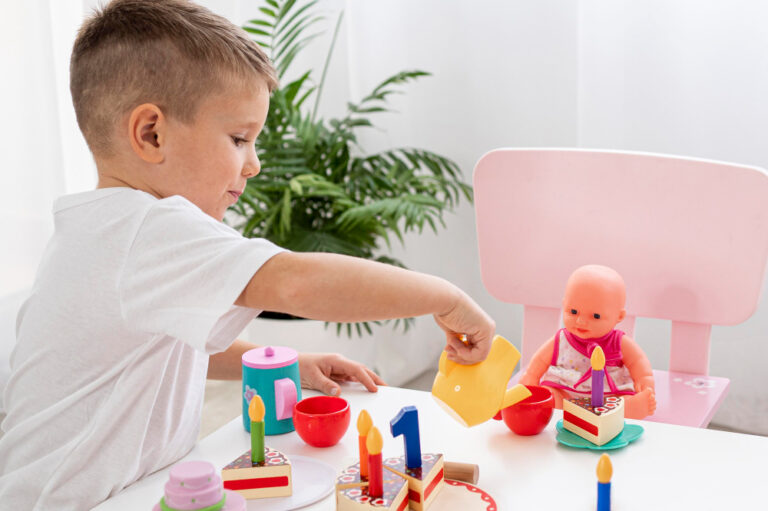10 Nourishing Baby Care Foods Every New Parent Should Know
Feeding a baby goes far beyond filling their tiny tummy it’s about laying the foundation for a lifetime of health and growth. The right foods support brain development, strengthen the immune system, and help babies build strong bones and muscles.
Parents often feel overwhelmed by the endless options and advice, but simple, nutrient-rich choices make all the difference. This guide highlights 10 essential baby care foods that blend taste, texture, and nutrition to support your little one’s journey through their early stages.
Each food on this list serves a unique purpose, from boosting iron levels to encouraging gut health. These options work well for babies starting solids, offering a mix of soft purees, gentle finger foods, and wholesome ingredients that are easy to prepare.
No gimmicks, no confusion just real, nourishing food that helps babies grow happy and healthy, one bite at a time. Let’s explore these powerful baby-friendly picks.
10 Baby Care Food
Babies grow fast. They need good food to stay strong and healthy. After six months, milk alone is not enough. Solid food helps your baby grow, sleep better, and stay active.
This blog will share 10 easy and healthy food ideas for baby care. Each one is soft, safe, and full of nutrients. Let’s go through them one by one.
1. Mashed Banana
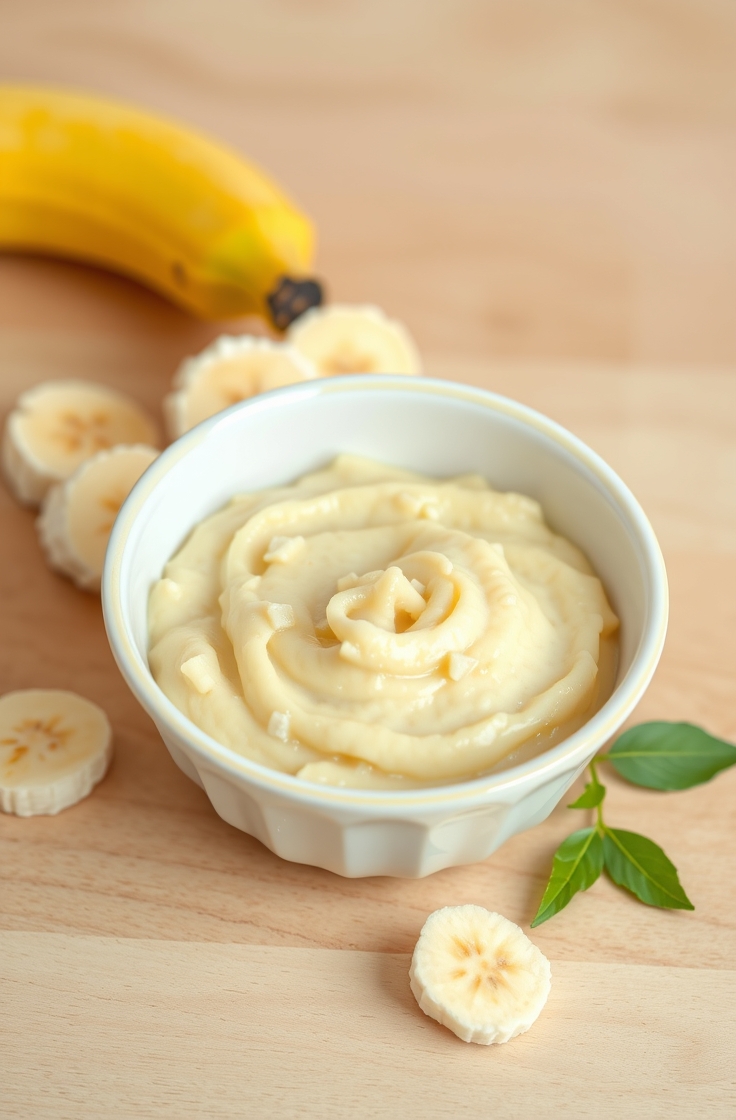
Banana is one of the first foods for babies. It is soft, sweet, and easy to mash. It has potassium, fiber, and vitamin B6. Bananas help with digestion and give quick energy.
Peel a ripe banana. Mash it with a fork. Make sure there are no lumps. You can add a few drops of breast milk or formula to make it smooth. Serve in a clean bowl.
Start with a small spoon. Wait for three days before trying a new food. This helps check for allergies.
2. Rice Cereal
Rice cereal is light and easy to digest. It is often the first grain given to babies. It has iron if you buy the fortified one. Iron is important for brain growth.
Boil some rice and blend it until smooth. You can also use rice powder. Mix with breast milk, formula, or water. Keep the texture runny at first.
As your baby grows, you can make it thicker. Always test the temperature before feeding. It should be warm, not hot.
3. Apple Puree
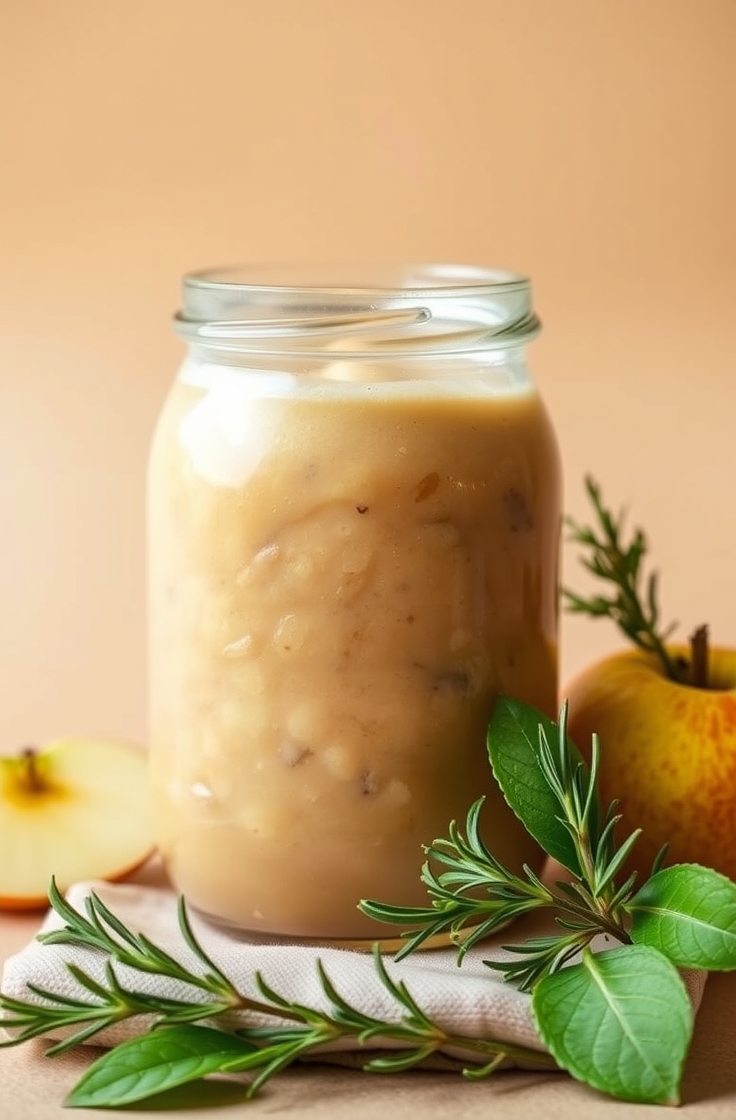
Apples are rich in fiber and vitamin C. They help your baby’s immune system. They also prevent constipation.
Peel the apple. Cut it into small pieces. Steam or boil until soft. Then mash or blend until smooth.
You can add a little water if it’s too thick. Do not add sugar or salt. Keep it natural. Serve fresh each time.
4. Lentil Soup
Lentils are full of protein and iron. They help build muscles and blood. Red lentils cook fast and are easy to digest.
Wash a small handful of red lentils. Boil with water until soft. Blend or mash to make a smooth soup.
You can strain it at first if needed. Do not add spices or oil. Serve plain. Start with small amounts.
5. Carrot Puree
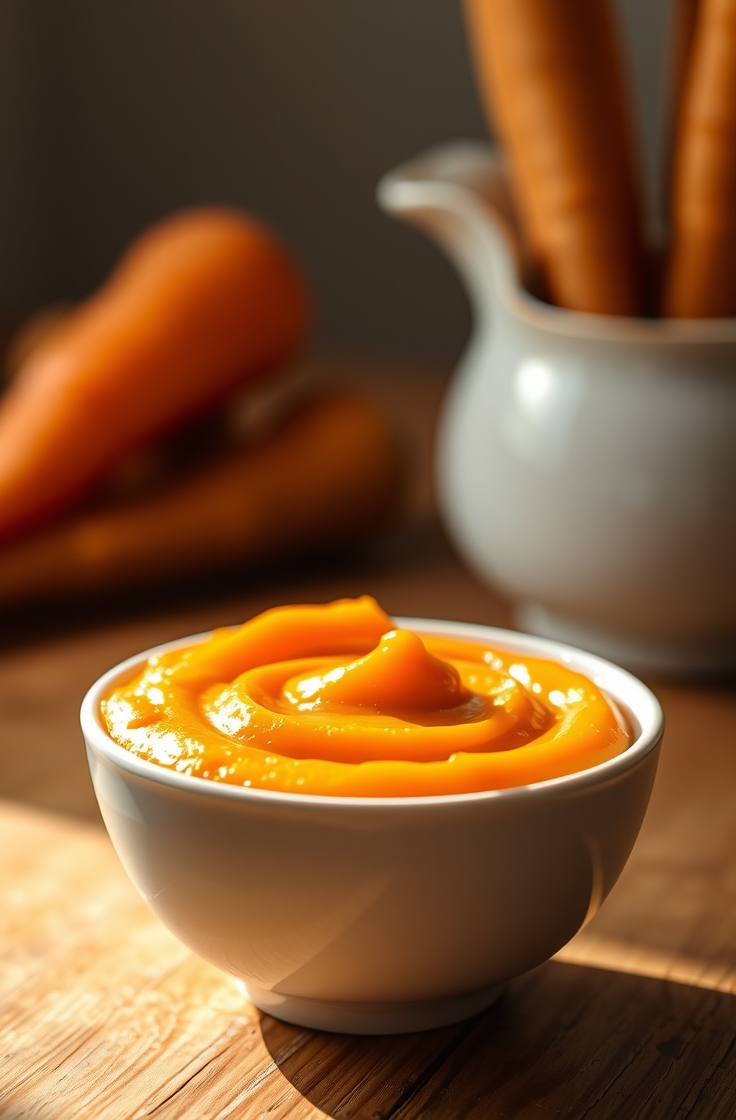
Carrots have vitamin A. This keeps eyes and skin healthy. They are naturally sweet and loved by many babies.
Wash and peel one carrot. Cut into small pieces. Steam or boil until soft. Then mash or blend until smooth.
Add a little water if needed. Keep the texture soft and lump-free. Serve in a clean bowl with a baby spoon.
6. Mashed Sweet Potato
Sweet potato is rich in fiber, vitamin C, and beta-carotene. It is filling and tasty. It helps with digestion too.
Peel and cut a small sweet potato. Boil or steam until soft. Then mash until smooth.
You can add breast milk or water to adjust the texture. Do not add butter, sugar, or salt. Keep it natural and safe.
7. Steamed Pumpkin
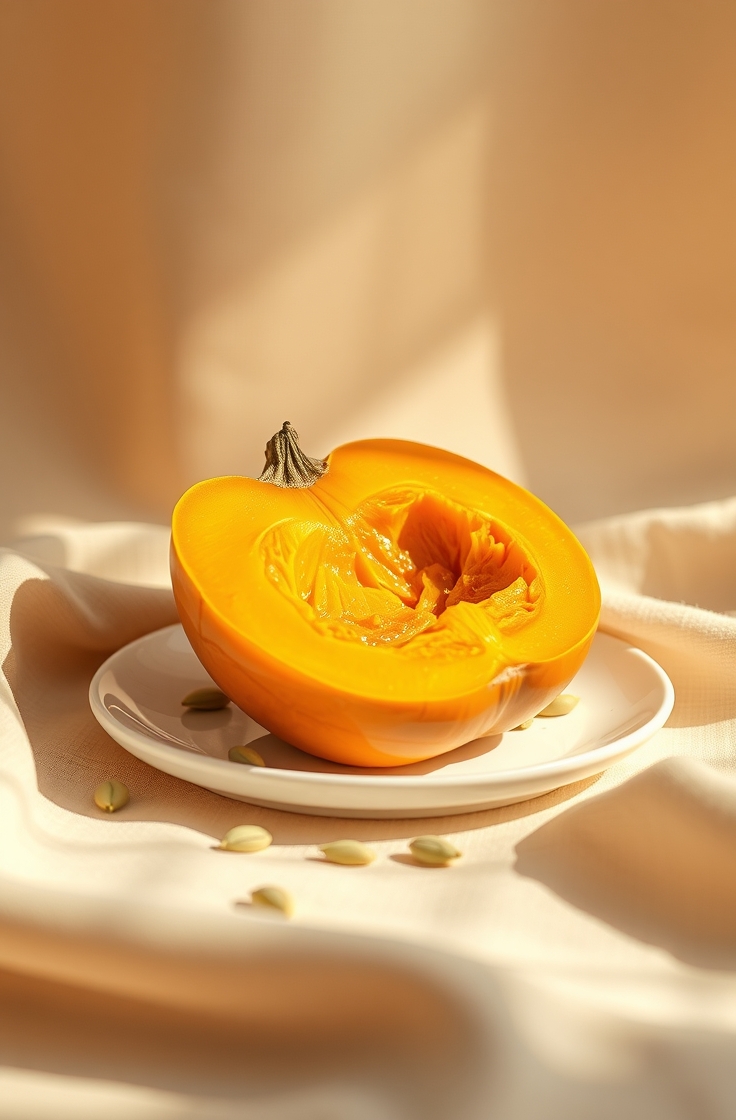
Pumpkin is light and easy to digest. It has vitamin A, potassium, and fiber. It helps your baby feel full and strong.
Cut a small piece of pumpkin. Remove seeds and peel. Steam or boil until soft. Then mash or blend until smooth.
Pumpkin has a mild flavor. Some babies like it right away. Others may need a few tries.
8. Pear Puree
Pears are soft and gentle on the tummy. They help with digestion and are rich in vitamins and water.
Peel a ripe pear. Cut into small pieces. Steam if it is too hard. Then mash or blend until smooth.
Keep it fresh. Use clean hands and tools. Start with small spoons and watch your baby’s reaction.
9. Avocado Mash
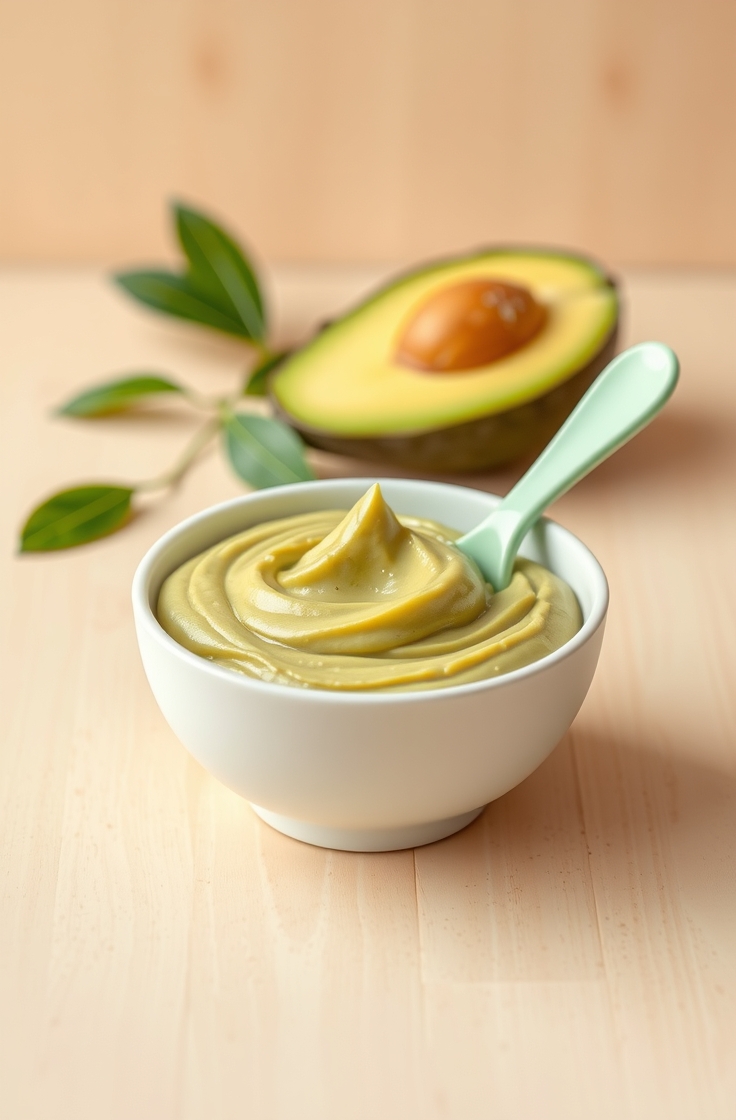
Avocado has healthy fat. It helps brain growth and keeps skin soft. It is creamy and easy to mash.
Cut a ripe avocado. Remove the seed. Scoop out the soft part. Mash until smooth. You can mix with a little breast milk for better taste.
Use a fresh avocado each time. Serve in small amounts. Watch for any signs of allergy.
10. Oatmeal
Oats are a good source of energy, fiber, and iron. They help babies stay full and active.
Use baby oats or grind regular oats into powder. Boil with water or milk until soft. Keep it smooth and runny at first.
Later, you can make it thicker. Do not add sugar or honey. Babies under one year should not eat honey.
FAQs
What is the best first food for a baby?
Mashed banana or rice cereal is a good start. They are easy to digest and safe.
How many times should I feed solid food in a day?
Start with once a day. Slowly move to two or three times as your baby gets used to it.
Can I mix breast milk with baby food?
Yes. Mixing breast milk with baby food can help your baby accept the new taste.
How do I know if my baby is ready for solid food?
Look for signs like sitting with support, showing interest in food, or opening the mouth when offered food.
Can I store homemade baby food?
Yes. Store in a clean, airtight container in the fridge. Use within 24 hours.
Should I add salt or sugar to baby food?
No. Babies don’t need added salt or sugar. Their kidneys are not ready for it.
What if my baby refuses the food?
Try again after a few days. It can take many tries before a baby likes new food.
Is it safe to feed water along with food?
Small sips of water are okay after 6 months, especially with solid food.
Can I give my baby fruits every day?
Yes, fruits like banana, apple, and pear are safe and healthy for daily use.
How do I know if my baby is allergic to a food?
Watch for signs like rash, vomiting, or loose motion. If this happens, stop the food and talk to a doctor.
Conclusion
Feeding your baby new food is a big step. It helps with growth, learning, and health. Start with simple foods like banana, rice, or carrot. Keep it soft, clean, and fresh.
Try one food at a time. Wait three days before adding another. This helps you know what suits your baby best.
Stay calm and patient. Every baby is different. Some may like sweet potato on day one. Others may need more time. Follow your baby’s cues. Smile. Talk. Make feeding a happy time.


